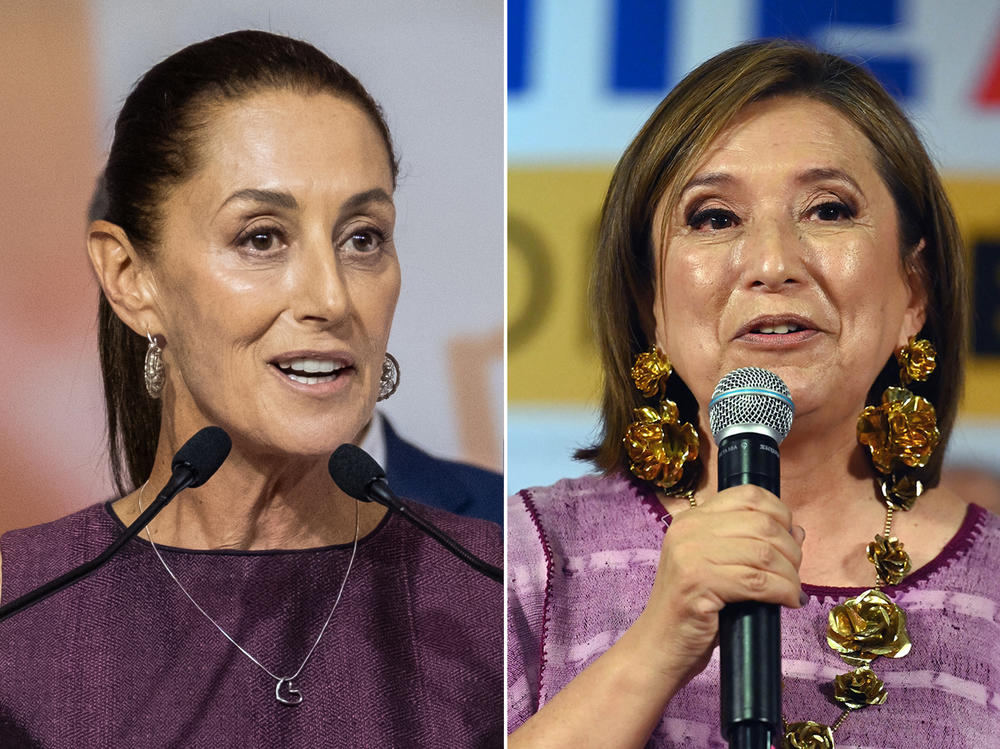Section Branding
Header Content
Mexico is on course to elect its first woman president
Primary Content
MEXICO CITY — Mexico's two main political groups have chosen women presidential candidates, setting up an unprecedented election next year.
The main opposition, the Broad Front for Mexico, chose Xóchitl Gálvez, an outspoken senator, to represent their coalition.
And the governing Morena party picked the former mayor of Mexico City, Claudia Sheinbaum, to be its nominee.
That means — barring any upsets by a third-party candidate — Mexico will elect a woman president, shattering the glass ceiling in a notoriously patriarchal country.
Both women are unlikely protagonists in Mexico's presidential race. Sheinbaum, 61, is an environmental engineer who became Mexico City's first Jewish mayor and is a close ally of leftist President Andrés Manuel López Obrador.
Gálvez, 60, is a computer engineer who founded her own tech business. She broke into politics as the head of the National Institute of Indigenous Peoples. She grew up in an impoverished community in the central state of Hidalgo, where she helped her family sell street food.
Her rise in politics has been meteoric and she is good at grabbing headlines. Last year she lumbered onto the floor of Mexico's Senate wearing an inflatable green dinosaur suit, to protest against a ruling party bill.
Women have made huge strides in Mexico's political arena in recent years, in a country where they were not allowed to vote until 1953. They have made up nearly half of the legislature since 2021. And a woman is currently chief justice of the Mexican Supreme Court.
In contrast, the U.S. currently ranks 71 in the world in terms of gender parity in politics. Mexico ranks at number 5.
Polls currently show Sheinbaum leading the race for president, with Mexico's Reforma newspaper showing her with 44% support, and Gálvez with 27%.
The presidential election is scheduled for June next year.
Copyright 2023 NPR. To see more, visit https://www.npr.org.

